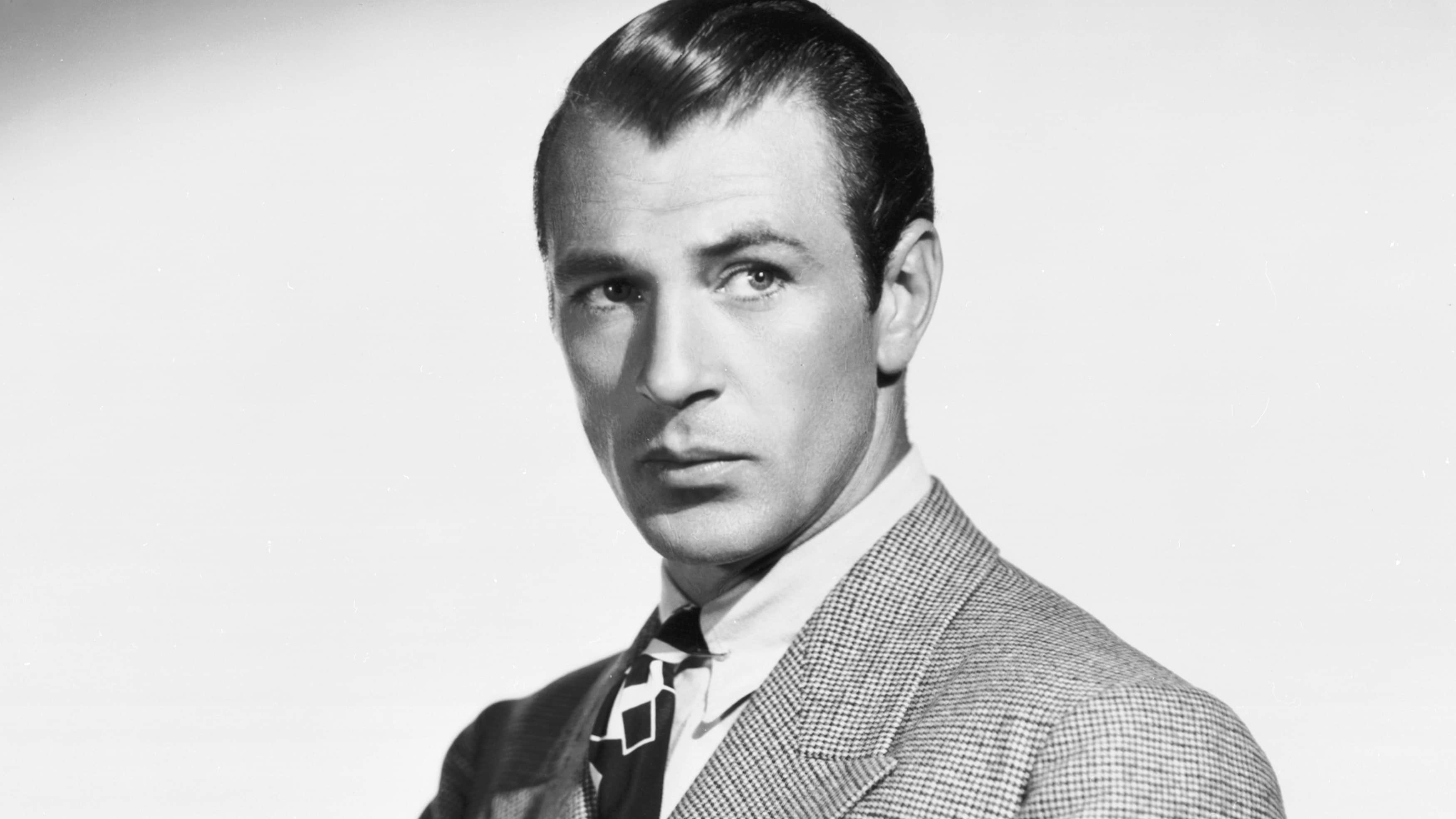Who Is Gary Cooper?
Gary Cooper, born Frank James Cooper on May 7, 1901, was an iconic American actor known for his distinctive screen persona and understated acting style.
He had a very successful career, winning the Best Actor Academy Award twice and being nominated for three more times. He received an Academy Honorary Award in 1961 in recognition of his extraordinary services to the motion picture industry.

Over the course of his 36-year career, from 1925 to 1961, Cooper performed in 84 feature films and made a name for himself as a well-known cinema star. He became well-known during the silent film era and remained well-known during the classical Hollywood Golden Age.
Both men and women were enthralled by Cooper’s appearance on film, proving that his attraction transcended gender lines. He played parts in a variety of genres, from Westerns to adventure pictures to tragedies, showcasing his flexibility.
He was a natural actor because of his capacity to portray his roles with ease and convey his own personality on screen.
Cooper, who played strong, yet modest characters who stood up for the common man, became the poster boy for the ideal American hero. His most well-known productions were “Mr. Deeds Goes to Town” (1936), “Sergeant York” (1941), “The Pride of the Yankees” (1942), and “High Noon” (1952).
Cooper began his career as a stunt rider and extra in movies, but he soon began acting parts. He achieved notoriety as a Western hero in silent films, and his breakthrough came in 1929 with his first sound feature, “The Virginian.”
He broadened his repertoire in adventure pictures throughout the early 1930s by playing more circumspect and complicated characters.
Cooper portrayed a new kind of hero as his career developed—one who battled against social forces and faced moral conundrums.
His portrayals of mature characters at war with society in films like “The Fountainhead” (1949) and “High Noon” (1952) demonstrated his acting prowess in this area.
He acted in non-violent roles, frequently portraying characters looking for salvation, in his later movies.
Cooper was a successful actor, but he also led an intriguing personal life. He was raised on a ranch where he learned to ride horses, hunt, and fish.
He was born in Helena, Montana, to English parents. Cooper developed a love for art while attending school in both England and the United States.
But in the end, his passion for performing inspired him to pursue a career in Hollywood.
The contributions Gary Cooper made to the film industry were well-known. For 23 years running, he constantly rated among the top 10 cinema personalities, and for 18 years, he was one of the highest-earning actors.
He was ranked as the 11th greatest male star of vintage Hollywood films by the American Film Institute in 1999.
Gary Cooper’s life was tragically cut short. At the age of 60, he died on May 13, 1961. His films continue to enthral viewers today, and he has left a lasting reputation as one of Hollywood’s most adored and gifted actors.
Gary Cooper Cause Of Death; All You Need To Know.
At the age of 60, Gary Cooper passed away on May 13, 1961. Lung cancer was the reason for his demise. Cooper had been a heavy smoker for a long time, and it is thought that his behaviour played a role in the disease’s onset.
Cooper’s health started to deteriorate in the late 1950s, and he started to show signs of his lung ailment. He kept working on films like “The Naked Edge” (1961) and “The Court Martial of Billy Mitchell” (1955) despite his illness. However, his failing health ultimately compelled him to give up performing.
Cooper sought medical attention for his ailment, but his disease had sadly already spread. He chose to keep his sickness a secret from the world despite his success and celebrity. He passed away at his Los Angeles home, surrounded by his loved ones.
The renowned career of Gary Cooper came to an end with his death, which also left a hole in the cinema business.
His contributions to the movie industry and his legendary performances are still honoured and cherished.
His life was tragically cut short by lung cancer, but his legacy endures, and he is still regarded as one of the most admired and adored actors in the annals of Hollywood.
